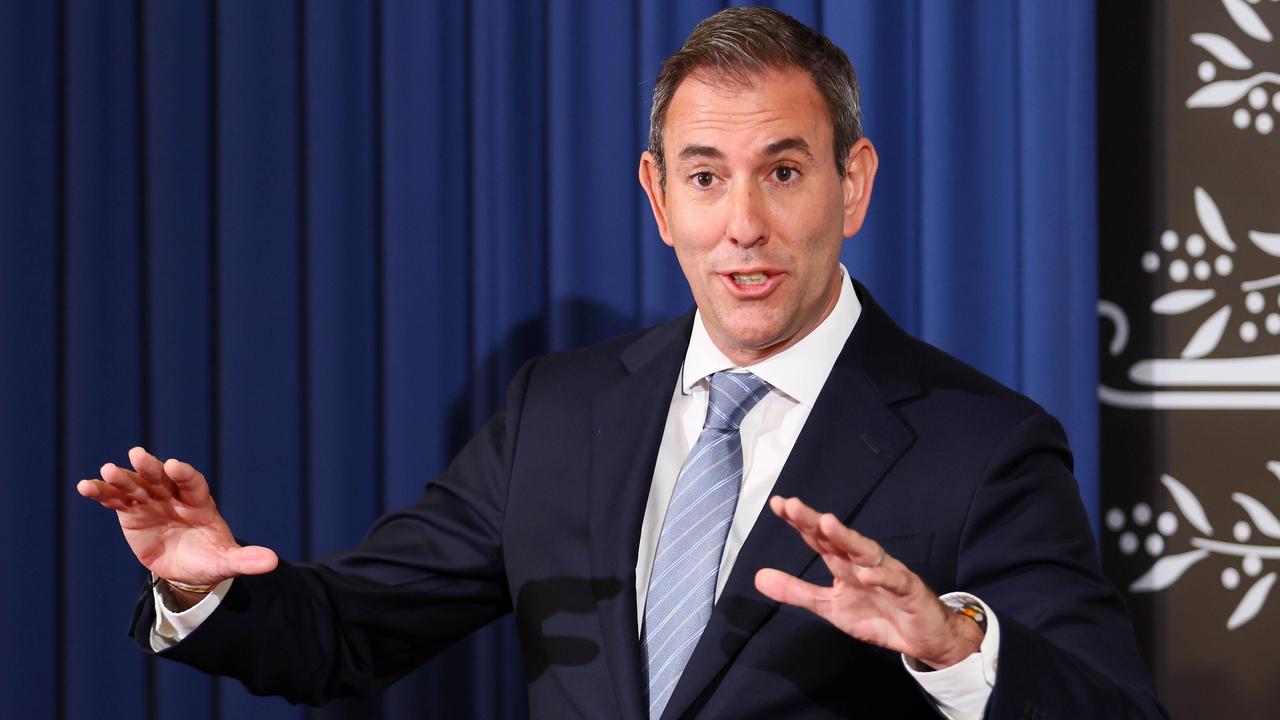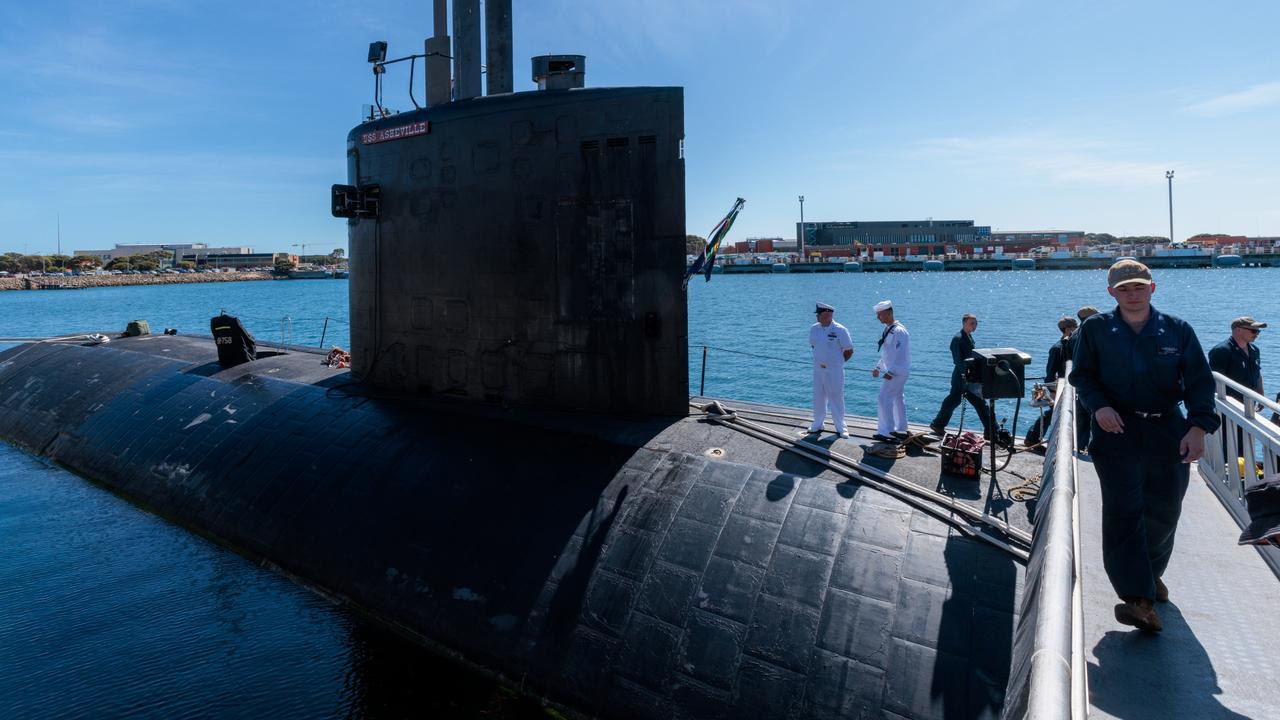Federal Budget 2022: Medicine prices slashed for 2.4m Australians
The lack of spending on Medicare and hospitals is a disaster for patients already suffering, a health chief has warned.
Federal Budget
Don't miss out on the headlines from Federal Budget. Followed categories will be added to My News.
The failure to provide new money to fix Australia’s hospital crisis could cost the Morrison government office at the next election, Australian Medical Association president Dr Omar Khorshid has warned.
“Any Australian who is waiting on a public hospital waiting list, including the 200,000 extra that have arrived in the last couple of years during the pandemic, this budget will provide absolutely no relief,” he told News Corp.
“The Medicare and hospital funding in the Budget amounts to little more than usual recurrent spending and planned growth, not the new injection of funds our health system desperately needs,” Dr Khorshid said.
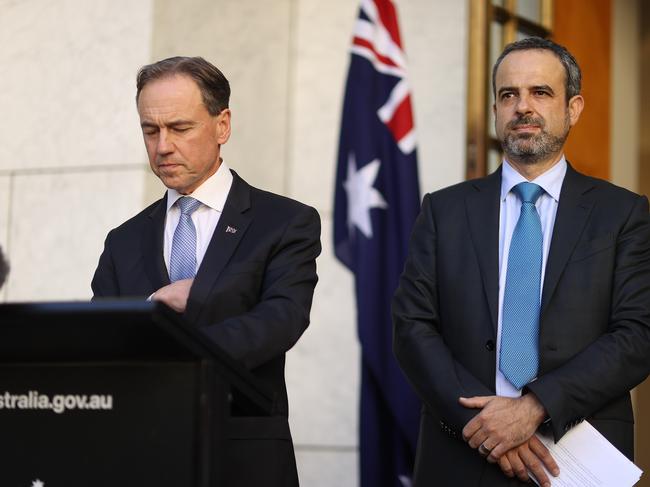
The recent South Australia state election which saw the Labor’s Peter Malinauskas eviscerate Liberal premier Steven Marshall showed what could happen to a government that ignored the health crisis, Dr Khorshid said.
“The South Australian election outcome and the fact that when one party campaigned on health they got a huge boost in their votes and I think Australians felt that the other party were quite out of touch,” he said.
However Dr Khorshid said it was unclear whether Labor would be any better on health.
“At the moment we don’t have a clear view as to which party is going to be the true friend of Medicare. Neither can claim that ground at the moment both have frozen Medicare in the past both of underfunded indexation of Medicare both have presided over a public hospital funding system that doesn’t meet the needs of Australians,” he said.
The federal budget failed to increase hospital spending to cope with the elective surgery Covid logjam created by Covid which has seen waiting lists blow out to 754,00 people and the proportion of people waiting over a year for surgery triple.
The Australian Medical Association has been campaigning to lift the federal government’s share of public hospital spending from 45 to 50 per cent to deal with the crisis but no change was made in the budget.
“The next Government will need to act. The major parties are on notice we will be pushing this case all the way to polling day because Australians are clearly saying they want a focus on healthcare, and they expect a health system which is able to meet their family and community’s needs,” Dr Khorshid said.
The Royal Australian College of General Practitioners (RACGP) said the budget failed to fund a major ten-year reform plan for ailing general practices.
Under the plan patients are to be encouraged to enroll with a single GP practice that would be given overall control of their health care.
“The college’s main concern is that vital components of the Primary Health Care 10 Year Plan remain unfunded,” RACGP president Dr Karen Price said.
“Failure to meaningfully invest in this plan means that tonight’s budget did not address the gaps identified by the RACGP and other health groups, including aged care, mental health, disability, and funding to support chronic and complex care,” she said.
Pharmacists are also unhappy with the budget.
The budget contains a plan to cut the cost of medicines for 2.4 million Australians by reducing the number of scripts patients have to fill before qualifying for the safety net.
However, Pharmacy Guild president Professor Trent Twomey said “the cost of medicines will continue to go up unchecked”.
“The maximum general co-payment for the PBS is now $42.50 and will keep rising every year hitting $50 by the end of the decade,” Professor Twomey said.
The Guild has been campaigning for the government to halve the co-payment to make medicines more affordable.
Chemist Warehouse claims the plan could make many generic medicine more expensive for patients who want to qualify for the safety net.
“Research by the Australian Patients Association has found more than 20 per cent of Australians aged 18-64 describe prescription medicines as being unaffordable, the Pharmacy Guild said.
“The Government’s decision to lower the PBS Safety Net Threshold does not go far enough. When many Australians are relying on paycheck to paycheck and are deciding whether they can put fuel in their car, purchase groceries or keep a roof over their head, they simply cannot afford to wait until October to access cheaper medicines,” Professor Twomey said.
“People are struggling to afford essentials and going without their medicines should never be a decision Australians have to make,” he said.
CHEAPER MEDICINES FOR PENSIONERS
Pensioners will receive cheaper medicines, a high-cost type of breast cancer treatment has been made affordable, bush communities will receive better access to MRI scans and billions more will be spent combating Covid-19, in a suite of new budget health measures.
Medicine prices will be slashed for 2.4 million pensioners, who will need to buy 12 fewer scripts before qualifying for the safety net under a measure to ease the cost of living.
The $525.3m policy is expected to save pensioners and concession card holders $81.60 if they fill more than 36 prescriptions a year and general patients $85 a year if they fill more than 34 scripts.
Nearly 600 women with rare triple negative breast cancer will benefit from a subsidy for a breakthrough $80,000 treatment Trodelvy.
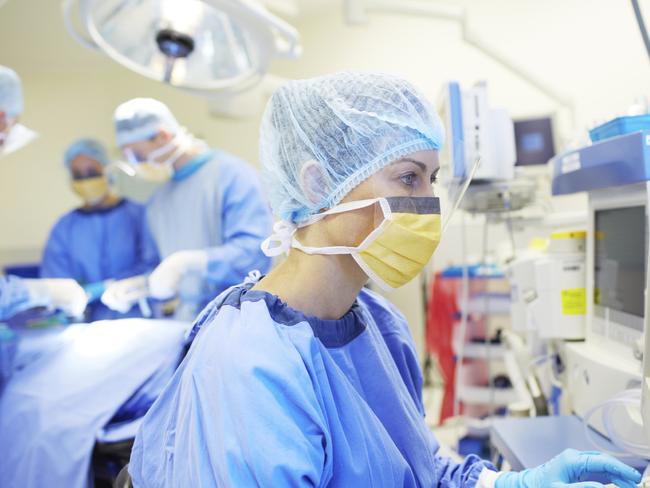
An emotional Treasurer Josh Frydenberg said the subsidy would help young women like Alison Day, who was driven to write her daughter Matilda a letter to open on her 12th birthday because she did not expect to be there.
“Because of Trodelvy, Alison will on Wednesday celebrate Matilda’s 12th birthday,” the Treasurer said.
Patients in the bush will find it easier to have an MRI scan with more imaging machines licensed for Medicare rebates from November.
And a series of mass advertising campaigns will be rolled out to encourage Australians to front up for regular health checks they put off during Covid.
“We are investing $55.7m to encourage Australians to resume having their regular health checks, diagnostic screening, and other preventive health activities,” Health Minister Greg Hunt said.
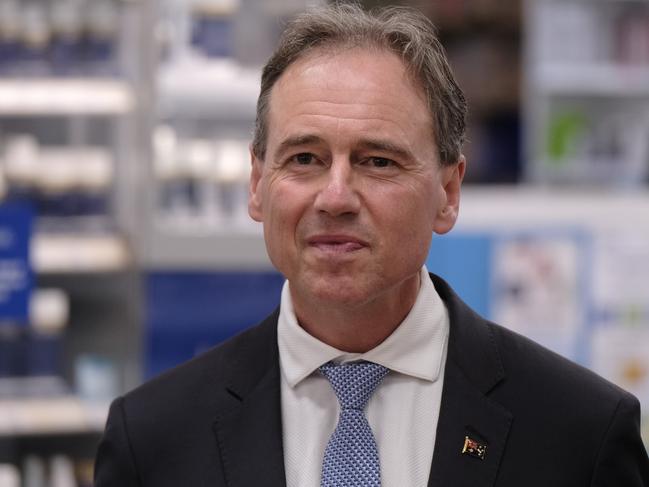
This investment includes:
■$10.2m for a cervical cancer screening campaign promoting the rollout of new self-collect tests.
■ $9.7m for short-term surge capacity for BreastScreen Australia.
■ $5.9m for rapid cervical screening testing and follow-up, including in Aboriginal Torres Strait Islander communities.
Covid-19 remains one of the biggest health threats to the nation and $4.5bn will be spent in coming years on vaccines, tests and hospitals as the pandemic continues to surge through the community.
Despite a range of new initiatives, health spending will actually plunge by $5.7bn next financial year and again by $3.2bn in 2023-24.
The budget documents say this will happen because the government expects to withdraw its Covid-19 emergency response measures.
Despite a massive increase in surgery waiting lists the budget has not increased the federal government’s share of funding for cash strapped public hospitals despite a campaign by the Australian Medical Association to lift it from 45 to 50 per cent.
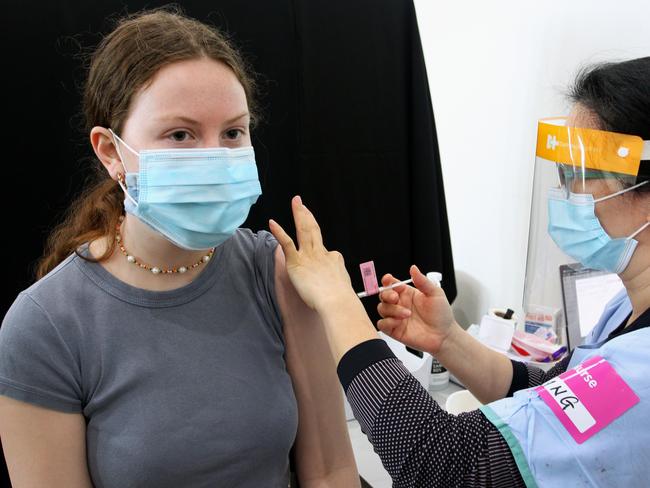
A focus on cancer will see women aged 50 to 60 and at high risk of developing breast cancer for the first time receive a Medicare rebate for an MRI breast check.
Out-of-date clinical guidelines for detecting and managing prostate cancer will be updated under a $700,000 grant.
The government will also spend $10.2m on a program where nurses will prioritise access to colonoscopies to shorten wait times.
Currently, patients who return a positive bowel cancer screening test are waiting many months for colonoscopies when they should be done within 30 days and in some cases the cancer spreads.
Many of the health measures in Tuesday’s budget were announced ahead of the release of the document including a major mental health plan and a series of women’s health measures including support for endometriosis sufferers and help for women dealing with stillbirth and miscarriage.




